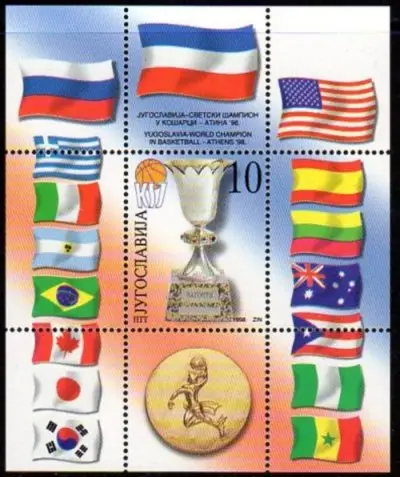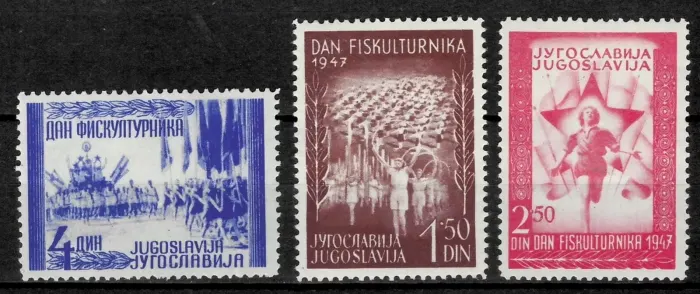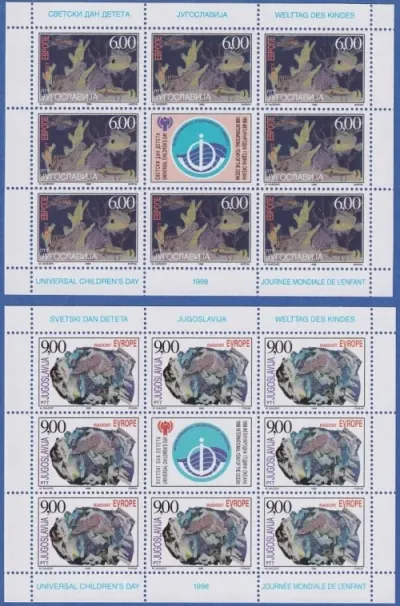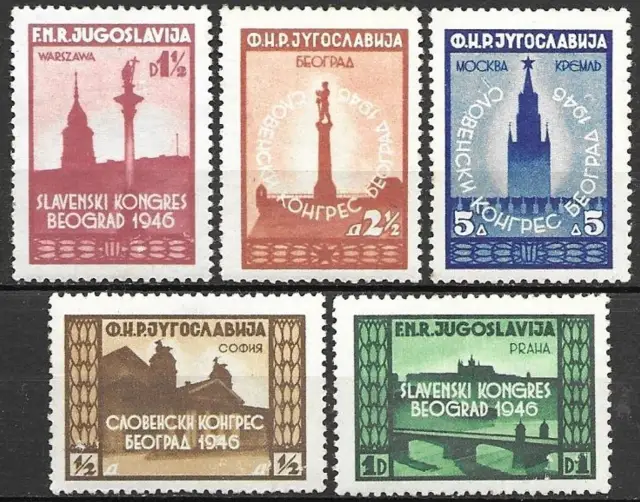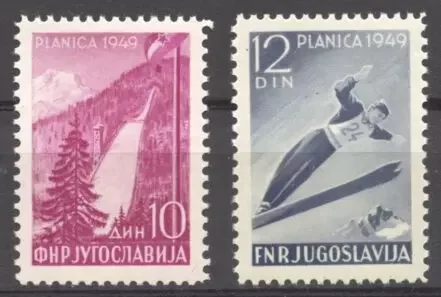FNR Yugoslavia postage stamps year 1948 5th Anniversary of the Republic set MNH**
In 1948, the Federal People’s Republic of Yugoslavia (FNRJ) celebrated the 5th anniversary of its establishment, which took place on November 29, 1943, during World War II. This date marked the Second Session of AVNOJ (Anti-Fascist Council for the National Liberation of Yugoslavia) in Jajce, Bosnia, where the Partisans declared the abolition of the monarchy and laid the foundations for a socialist federation.
Context of the 5th Anniversary (1948)
The celebration of the 5th anniversary of the republic in 1948 took place during a turbulent period for Yugoslavia, as it had just undergone the Tito-Stalin Split in June 1948. Yugoslavia had been expelled from the Cominform (the Soviet-led communist bloc), making it the first and only socialist country to break away from Stalin’s influence. This event drastically shaped the political and economic situation in Yugoslavia.
Key Aspects of the 5th Anniversary
- Celebrations and State Propaganda
- Large parades and rallies were held across major cities like Belgrade, Zagreb, Sarajevo, and Ljubljana.
- Tito’s government emphasized Yugoslavia’s independence from the Soviet Union, presenting the country as a unique socialist model.
- Speeches focused on economic self-sufficiency and military readiness amid fears of a Soviet invasion.
- Military Displays and Unity
- The Yugoslav People’s Army (JNA) organized military parades, showcasing its growing strength.
- The government promoted the slogan of “Brotherhood and Unity” (Bratstvo i jedinstvo) to solidify multi-ethnic cooperation.
- Economic and Social Developments
- The first Five-Year Plan (1947-1952) was in progress, aiming to industrialize Yugoslavia rapidly.
- Major infrastructure projects, such as hydroelectric plants, railways, and factories, were highlighted.
- Youth work brigades were actively building roads and railways as part of socialist development efforts.
- Tito’s Leadership and Anti-Soviet Stance
- Marshal Josip Broz Tito gave a major speech reinforcing Yugoslavia’s right to follow its own socialist path.
- The government accused the USSR of attempting to undermine Yugoslavia, further distancing itself from Soviet-style communism.
- New diplomatic relations with the West were beginning, as Yugoslavia sought economic and military aid from the US and UK.
Significance
- The 1948 anniversary was a defining moment in Yugoslav history, marking its break from Soviet influence and setting the stage for the development of Titoism—a unique form of socialism that balanced state control with some market elements.
- It reinforced national unity and self-reliance, which became a major theme in Yugoslav ideology moving forward.


